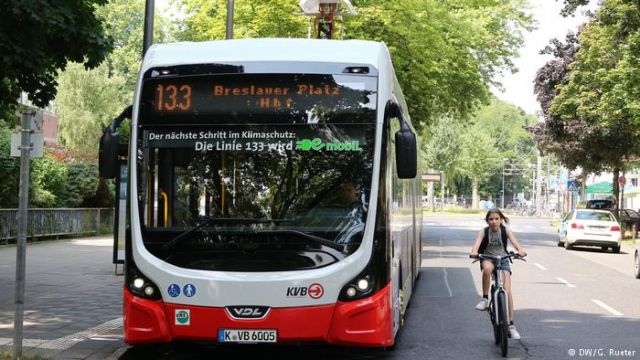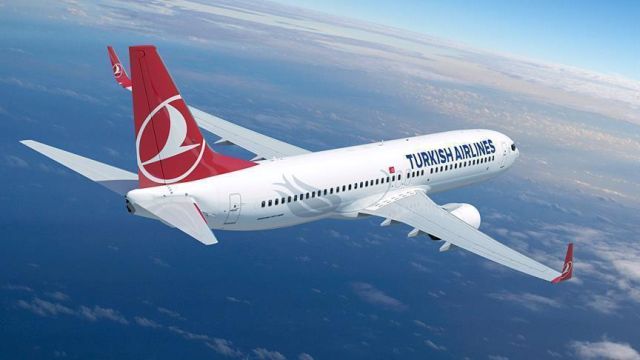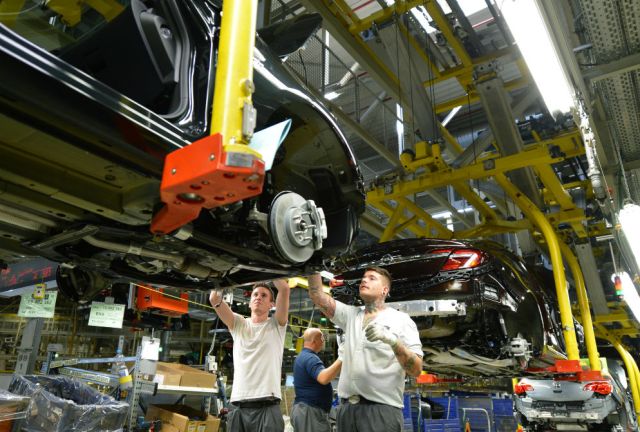
by Editor | May 25, 2021 | World
 By Ayhan Simsek,
By Ayhan Simsek,
Berlin: Germany’s Social Democrats (SPD) voted in favor of forming a coalition government with Chancellor Angela Merkel’s conservatives, according to results announced on Sunday.
The SPD said 66 percent of its members who took part in the binding postal ballot approved the coalition deal with Merkel’s CDU/CSU bloc.
Some 239,604 members of the SPD voted “yes”, and 123,329 members voted “no” in the mini-referendum, party treasurer Dietmar Nietan told a news conference in Berlin.
The vote cleared the way for a “grand coalition” government between the SPD, Chancellor Angela Merkel’s Christian Democratic Union (CDU) and its sister party Christian Social Union (CSU).
The leaders of the SPD and Merkel’s CDU/CSU bloc had reached a preliminary agreement on Feb. 7 to form another “grand coalition” government, after a 136-day post-election stalemate.
The party organs of the CDU and CSU had approved the coalition deal last month.
Merkel-led conservative-left coalition government is expected to take office following a vote at the German parliament on March 14.
It will be the third “grand coalition” between the Christian Democrats and Social Democrats since 2005 and will grant Merkel a fourth consecutive term as the chancellor.
Merkel’s CDU/CSU alliance emerged as the largest bloc in the parliament following September’s federal election, but they failed to secure an absolute majority.
The SPD suffered its worst result in decades but remained the second-largest party in parliament.
—AA

by Editor | May 25, 2021 | World
 Berlin : The German government has made a proposal to introduce free public transportation as a radical measure to lower nitrogen oxide pollution in cities.
Berlin : The German government has made a proposal to introduce free public transportation as a radical measure to lower nitrogen oxide pollution in cities.
At least 20 major German cities continue to record nitrogen oxide pollution levels that exceed the EU limits and would be unable to correct the circumstance before 2020 according to a new report, Xinhua news agency said.
With the announcement on Tuesday, Berlin attempted to prevent any legal action against it by the European Commission for continually failing to comply with European Union (EU) urban air quality regulations.
Several courts in Germany were also independently mulling imposing a driving ban on diesel vehicles in the worst-affected cities.
The Federal Administrative Court in Leipzig is expected to deliver a potentially-far reaching verdict in this context on February 22.
Human exposure to nitrogen oxide emissions is associated with pulmonary diseases and is mainly caused by older diesel-vehicles.
News magazine Politico cited a letter by acting Minister for the Environment Barbara Hendricks and others to EU Environmental Commissioner Karmenu Vella which outlined the plan.
“If necessary”, municipal and state governments should be supported financially in efforts to lower the number of private automobiles on their streets, the letter read.
How exactly the cost of the free public transportation would be covered though remained unclear.
The German government is also mulling a series of other proposals including “low emissions zones” for freight traffic to appease Brussels.
The measures are to be tested for their effectiveness first in small-scale experiments in five “model cities”.
The letter said a multi-billion euros program co-financed by the state and carmakers was already underway to improve urban air quality and that the issue was of the “highest priority” in Berlin.
Responding to the letter on Tuesday, the Association of German Transport Companies (VDV) expressed doubts over the economic viability of free public transportation.
The VDV told press that it saw the proposals “very critically”, given the need for taxpayers to cover around $15 billion dollars each year in revenue lost from ticket sales.
Other organisations highlighted the need to ensure that free public transportation would be introduced on a firm financial footing.
“Whoever wants cheap local public transportation has to be able to pay for it,” German Association of Cities ‘Staedtetag’ director Helmut Dedy said.
—IANS

by Editor | May 25, 2021 | Corporate, Corporate Buzz, Muslim World
 Frankfurt, Germany: Turkey’s national flag carrier Turkish Airlines (THY) carried 4.11 million passengers across Germany in 2017, according to an airline official.
Frankfurt, Germany: Turkey’s national flag carrier Turkish Airlines (THY) carried 4.11 million passengers across Germany in 2017, according to an airline official.
“In 2017 almost 4.11 million passengers travelled by Turkish Airlines and its partner in Germany. Our occupancy rate in average in Germany was 79 percent,” up 5 percent from 2016, Muhammet Ensar Karabulut, Turkish Airlines manager in Frankfurt, told Anadolu Agency on Friday.
Karabulut added that Turkish Airlines’ Frankfurt operations carried almost 630,000 passengers, with an occupancy rate of 82 percent, up 6 percent from 2016.
Stating that Turkish Airlines’ capacity in Germany will be enhanced on March 25 when it adds a second wide-bodied aircraft (A330) to its fleet, he said: “With this capacity increase, we aim to raise our passenger figures at least 5 percent in 2018.”
Karabulut said that Turkish Airlines now has three direct flights a week from Turkey’s capital Ankara to Frankfurt.
“As you know Turkish Airlines started direct flights from Ankara to Frankfurt on Oct. 29, to Vienna and Berlin on Oct. 30, and to Paris on Oct. 31,” he said.
The Frankfurt to Ankara service — offered on Wednesday, Friday, and Sunday — had an average 82 percent occupancy rate in 2017.
Turkish Airlines currently has more than 330 aircraft (passenger and cargo), flying to over 300 destinations in 120 countries.
The airline was named “Best Airline in Europe” by Skytrax for six years in a row from 2011 to 2016.
—AA

by Editor | May 25, 2021 | Corporate, Corporate Buzz, Corporate Jobs, Employment, World
 Berlin : A hard Brexit might endanger 14,000 of the 42,500 jobs in German car industry, a report published by the consulting firm Deloitte showed on Thursday.
Berlin : A hard Brexit might endanger 14,000 of the 42,500 jobs in German car industry, a report published by the consulting firm Deloitte showed on Thursday.
German automobile industry could expect a loss of up to $4.6 billion in the Brexit year, because of the close interdependence of the suppliers with carmakers in Germany, Britain and other European Union countries, said the report named “hard Brexit and supply chain”.
Every fifth car parts used in Britain originates from Germany. German manufacturers supply the British automobile industry directly, and are indirectly involved in the production of German and other European cars exported to Britain, Xinhua reported.
The jobs at risk are all at suppliers to carmakers, should Britain’s negotiations with the EU about their future relationship collapse without a deal.
A no-deal Brexit would lead to the introduction of tariffs and a possible crash in the value of the British pound, making British companies less able to purchase imports.
The sales slumps affect the supply chain indirectly and lower revenue and employment for German suppliers.
“In the Brexit year 2019, a hard Brexit would cause sales of German suppliers to shrink by 23 per cent from 16.4 to 12.6 billion euros, which represents a decline of around 5 per cent of German suppliers’ current total turnover,” Deloitte chief economist Alexander Boersch said.
—IANS

by Editor | May 25, 2021 | Business, Investing, Large Enterprise
 New Delhi : Around 80 Indian companies in Germany employing a total workforce of 27,400 generated combined revenues of Euro 11.4 billion in 2016, the Confederation of Indian Industry (CII) said on Sunday citing its joint study conducted on the matter.
New Delhi : Around 80 Indian companies in Germany employing a total workforce of 27,400 generated combined revenues of Euro 11.4 billion in 2016, the Confederation of Indian Industry (CII) said on Sunday citing its joint study conducted on the matter.
Based on interviews with leading Indian chief executives, the study, done by the Bertelsmann Foundation, Ernst & Young (EY) and CII, showed that, since 2010, nearly 140 major investment projects by Indian companies have been initiated in Germany.
“This includes FDI (foreign direct investment) announcements as well as M&As (merger and acquisitions),” a CII release said here.
“Between 2010 and 2016, Germany was the second-largest recipient of Indian FDI in Europe with 96 projects,” it said.
According to the study, the top sectors for investment include automobiles, metals and metal processing, professional, technical and scientific services, pharmaceuticals and chemicals, electrotechnics and machine building.
The study found that Indian companies in Germany currently generate nearly 70 per cent of their turnover in the labour intensive sectors of metals (40 per cent) and automotives (29 per cent). Major players in these sectors are Tata Steel, Hindalco industries and Sona Autocomp.
“The Indian IT industry accounts for a revenue share of nine percent,” CII said.
Access to innovation and technology are important factors that influence the decision to invest in Germany, according to 80 per cent of the CEOs surveyed.
This is borne out by the M&A activity over the past six years, CII Director General Chandrajit Banerjee said in the statement.
“In fact, one-fifth of the acquisitions made by Indians were found to be in the automotive supplier sector and one-third in the mechanical engineering sector,” he said.
“Moreover, the planned merger of the steel businesses of Tata Group and ThyssenKrupp has taken Indo-German cooperation to a whole new level,” he added.
According to Murali Nair of Bertelsmann Stiftung, Germany should put more focus on government incentives in innovation, such as tax relief for depreciation, in order to encourage long-term commitment of foreign investors.
Besides, 90 per cent of surveyed Indian CEOs were of the opinion that Britain’s exit from the European Union will increase the attractiveness of Germany as an investment location and will help increase the volume and diversity of Indian investments in the country.
—IANS





